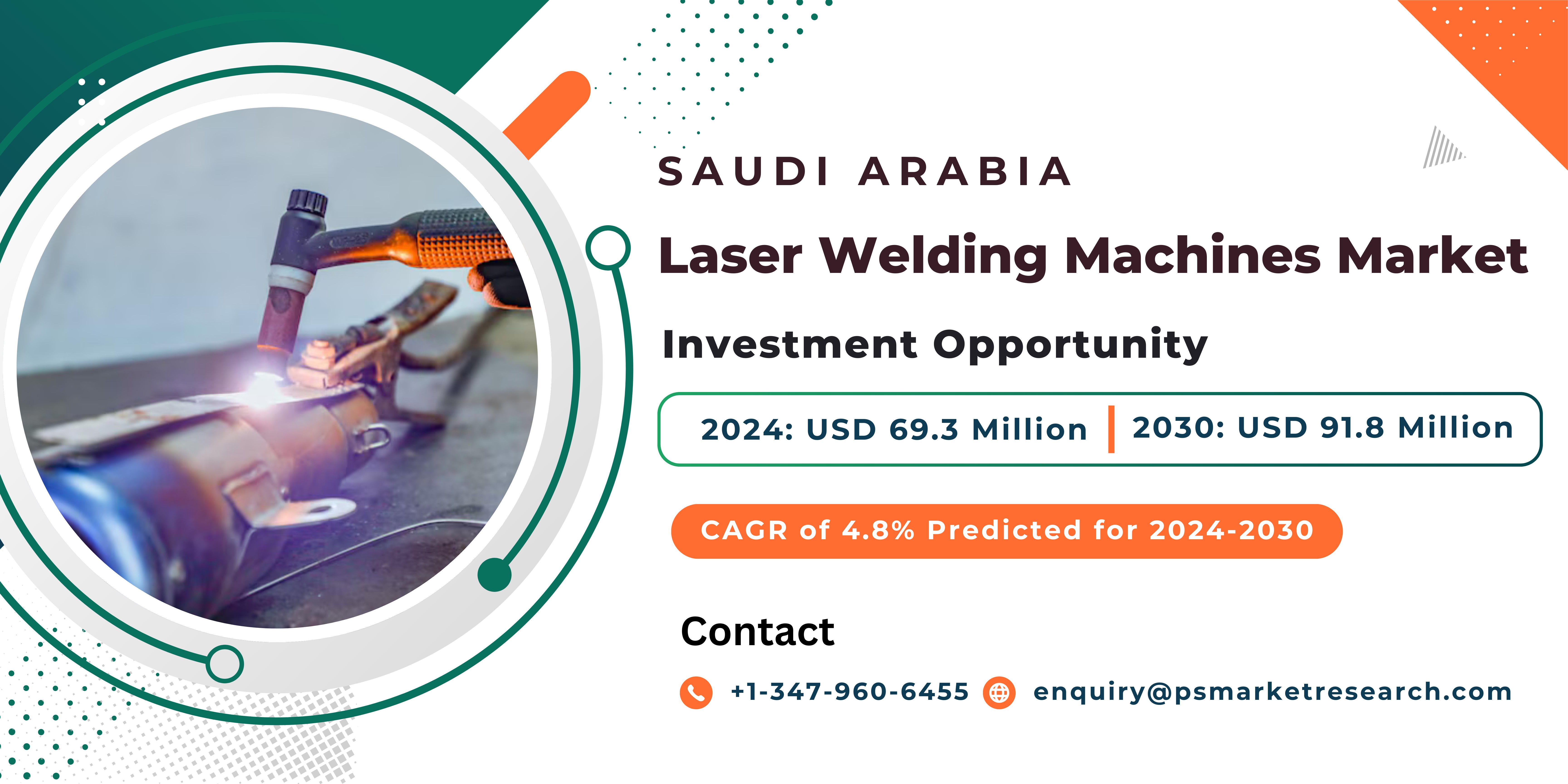Saudi Arabia’s Laser Welding Market Is Sparking a New Era of Industrial Precision
Did you know Saudi Arabia’s laser welding machines market is expected to grow from USD 69.3 million in 2024 to USD 91.8 million by 2030? With a steady compound annual growth rate of 4.8%, this market reflects the Kingdom’s expanding focus on advanced manufacturing, automation, and industrial modernization.
Laser welding—an advanced technique that uses concentrated light beams to join materials with precision and minimal distortion—is becoming increasingly vital across high-tech and heavy industries. From automotive production to aerospace components and energy infrastructure, laser welding offers efficiency, speed, and superior quality. In Saudi Arabia, it’s becoming a foundational technology in the shift toward a diversified, innovation-led economy.
Why Laser Welding Is Gaining Ground in the Kingdom
As Saudi Arabia executes its Vision 2030 strategy, the industrial landscape is being reshaped by technology. Traditional fabrication methods are giving way to digital and automated processes, and laser welding is at the forefront of this shift.
Unlike conventional welding, which often involves higher thermal loads and post-processing, laser welding provides high-strength, low-deformation joints with exceptional accuracy. These benefits are particularly appealing to sectors where tolerances are tight and quality standards are rigorous.
In the automotive sector, for instance, laser welding is used to assemble lightweight body structures and battery modules in electric vehicles. As Saudi Arabia ramps up its ambitions to become a regional EV manufacturing hub—evident in projects like CEER, the country’s first electric car brand—the demand for precise and scalable welding technologies is rising.
Energy, Defense, and Infrastructure Lead the Demand
Saudi Arabia’s energy sector is another major driver of the laser welding market. Whether in pipeline fabrication, oil and gas processing equipment, or renewable energy systems like solar panel frames and wind turbine components, laser welding is delivering the durability and reliability needed for mission-critical operations.
The defense and aerospace sectors are also contributing to this growth. These industries require materials that are both lightweight and extremely strong—traits that laser welding supports by maintaining structural integrity without added weight from fillers or excess metal.
Additionally, Saudi Arabia’s push for infrastructure megaprojects, including high-speed rail lines and advanced construction systems, is fostering demand for industrial welding automation. Laser welding machines are increasingly integrated into robotic manufacturing cells, offering scalable solutions for large-scale industrial operations.
Technology and Training Shaping Market Evolution
As global suppliers enter the Saudi market through partnerships and joint ventures, the accessibility of advanced welding systems is improving. Leading manufacturers are bringing in modular and fiber laser welding units tailored for local conditions and industrial needs.
At the same time, the market is evolving through investment in workforce development. Technical training centers and engineering institutions are incorporating laser welding technology into their curricula, helping build a domestic talent pipeline equipped for next-generation manufacturing.
Local initiatives to encourage the adoption of Industry 4.0 are also playing a role. Factories are increasingly adopting smart manufacturing platforms that integrate laser welding machines with real-time monitoring and predictive maintenance systems. These capabilities not only improve efficiency but also extend machine life and reduce operational downtime.
Challenges and Opportunities Ahead
Despite the growth potential, the market still faces challenges. High initial costs, limited domestic production of specialized equipment, and the need for skilled operators can be barriers for small and medium enterprises. However, with increased government support for industrial digitization and local content development, these hurdles are gradually being addressed.
Looking ahead, Saudi Arabia’s laser welding machines market is not just expanding in size—it’s evolving in sophistication. As the Kingdom embraces high-precision manufacturing, laser welding will play an essential role in shaping the quality, efficiency, and competitiveness of its industrial output.
Follow us for more insights on how advanced technologies like laser welding are driving Saudi Arabia’s manufacturing transformation: https://bitl.to/4ZEr












